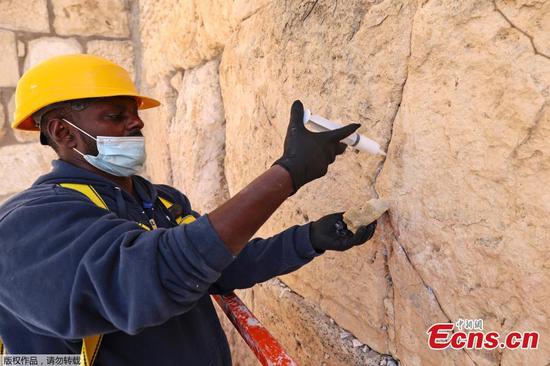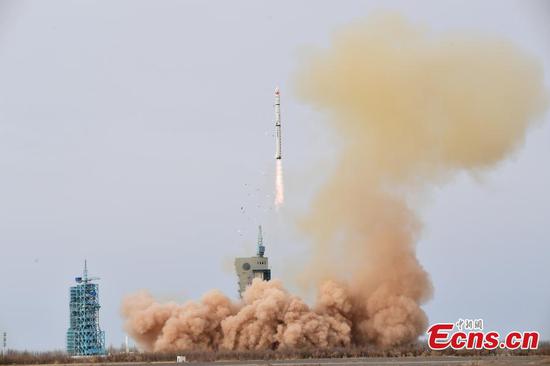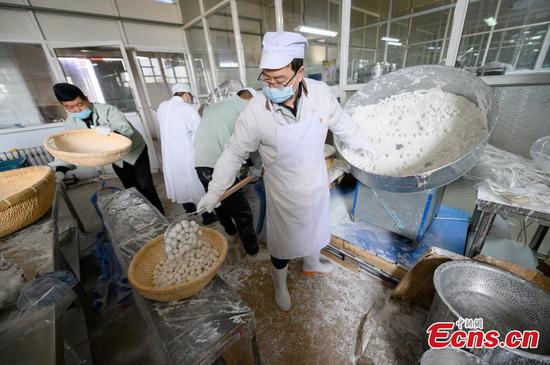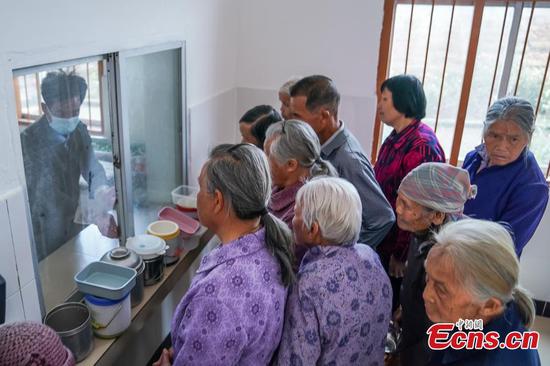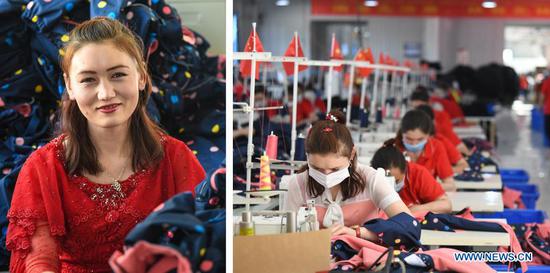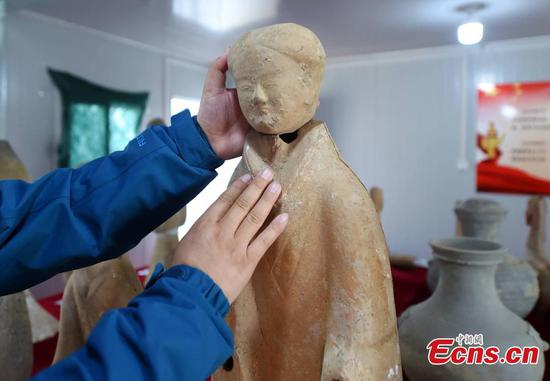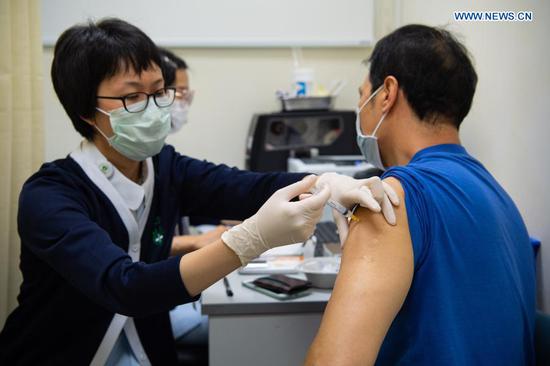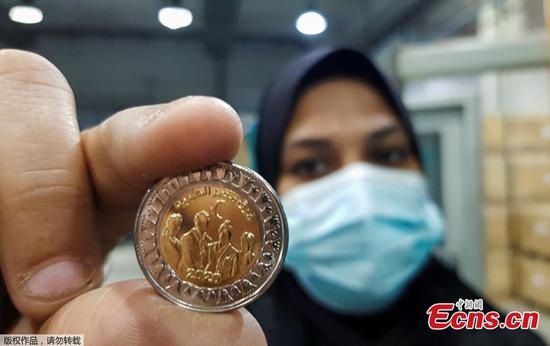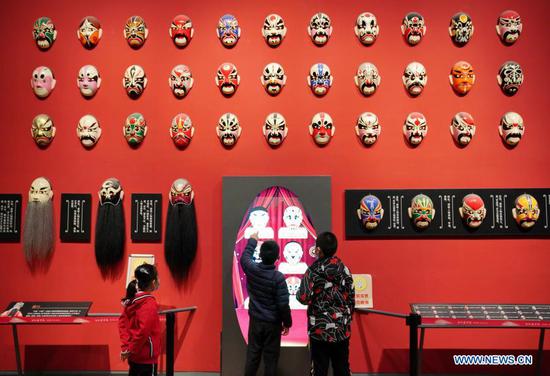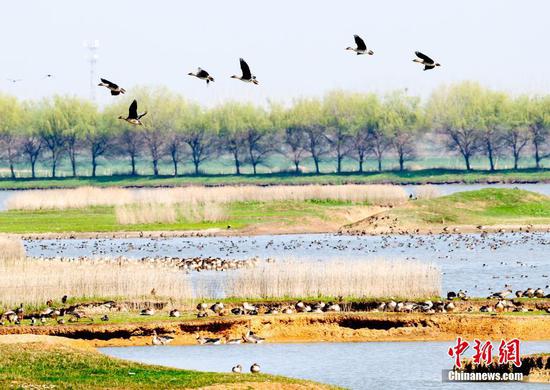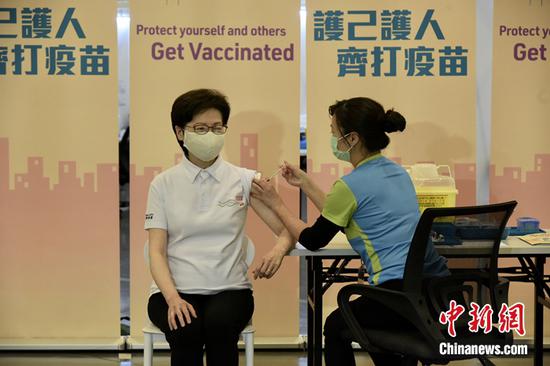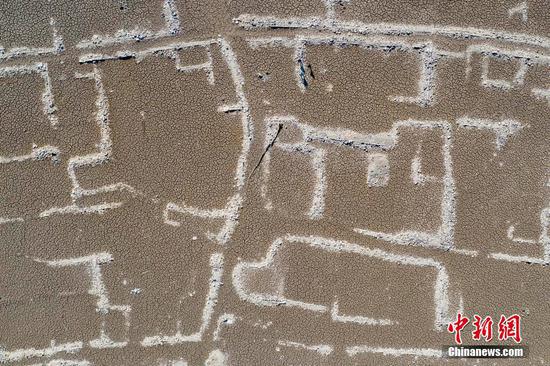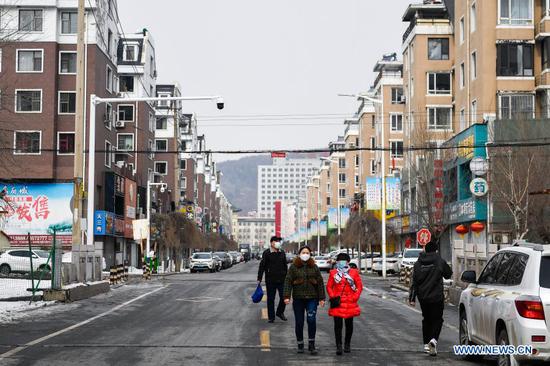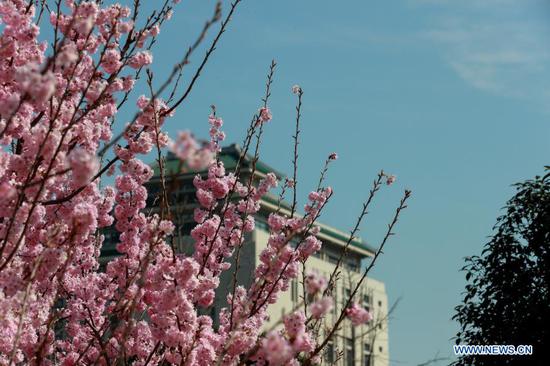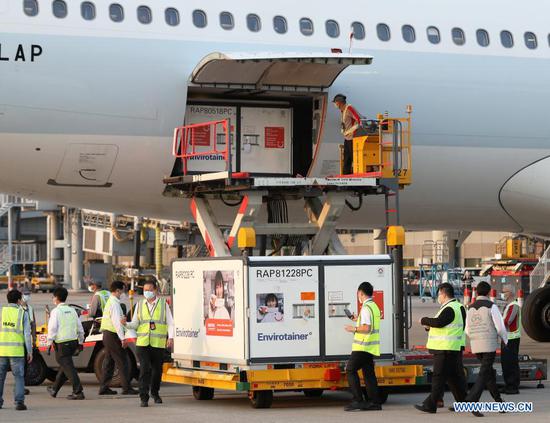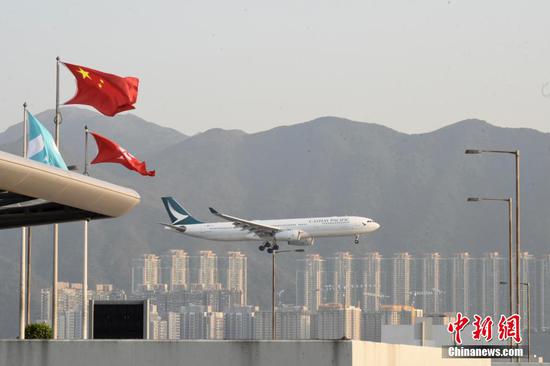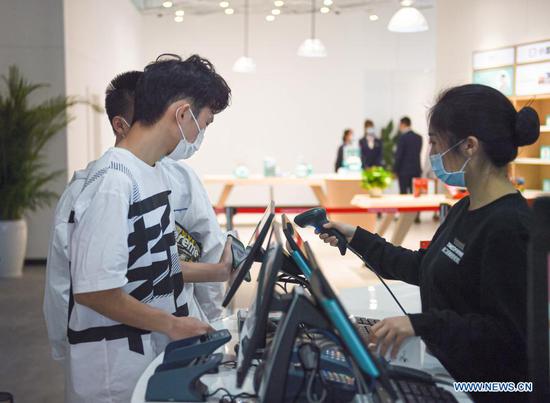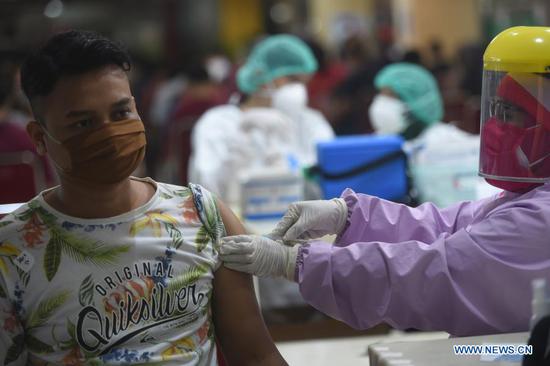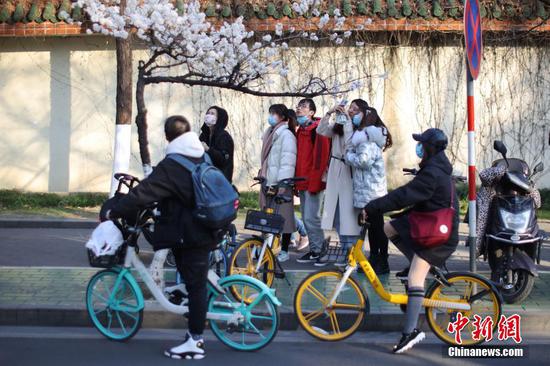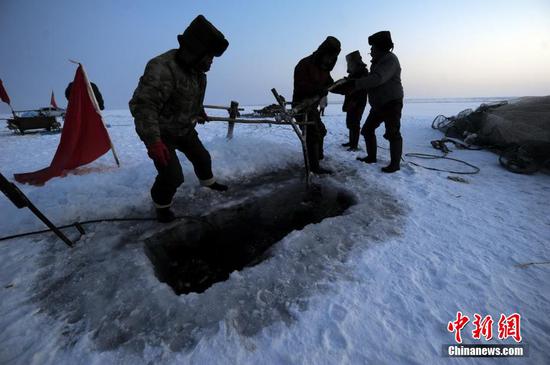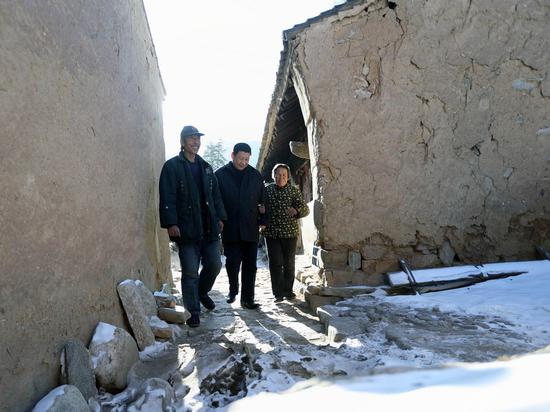
Xi Jinping (C), general secretary of the Communist Party of China (CPC) Central Committee and chairman of the CPC Central Military Commission, visits the family of Tang Zongxiu, an impoverished villager in the Luotuowan Village of Longquanguan Township, Fuping County, north China's Hebei Province. Xi made a tour to impoverished villages in Fuping County from Dec. 29 to 30, 2012. (Xinhua/Lan Hongguang)
China's massive anti-poverty campaign has transformed nearly 100 million lives in just eight years.
It was a miracle that helped the world's most populous country achieve the UN Sustainable Development Goal on poverty eradication 10 years ahead of the schedule.
A LEADER'S PROMISE
On a crisp winter day in December 2012, Xi Jinping, who was not long ago elected general secretary of the Communist Party of China Central Committee, visited the mud-brick house of Tang Zongxiu located in the Taihang Mountains, northern China's Hebei Province. The dilapidated house was engulfed in darkness and had leakages.
For two days, Xi visited multiple houses in two villages and saw similar sights of destitution. Knowing what it was like to be in penury, Xi, as the top leader, was determined to end it for all Chinese.
He sounded a clarion call to end poverty nationwide, which he deemed an essential requirement of socialism.
At the time, China still had 98.99 million people living below the national poverty line. Xi pledged that all rural poor will shake off poverty to usher in a prosperous society in all respects when the Party celebrates its centenary in 2021.
It was a tall order to achieve this goal. To deliver on that promise, Xi took charge, drew plans, convened conference after conference, and personally visited all 14 contiguous impoverished areas across the country. "We must have the determination like the fool old man who moved the mountains," Xi once said at a high-level meeting on poverty relief. "We must resolutely fight to win the war against poverty."
Even the pandemic did not stop him. In March 2020, when China was fighting the critical battle against coronavirus, Xi convened the largest teleconference on poverty eradication in years, as he called for resolutely accomplishing this great cause of momentous significance for the Chinese nation and all humanity.
MIRACLE IN RETROSPECT
Precision was a key to China's success. The strategy of targeted poverty alleviation was put forward by Xi who compared adopting indiscriminate approaches as "killing fleas with a hand-grenade."
From household to household, the questions of who exactly needs help, who should provide help, how help should be rendered, and what standards and procedures should be adopted for exiting poverty were answered.
The entire society was mobilized. Since 2015, 3 million cadres from governments, state-owned enterprises and public institutions in cities and towns were sent to the countryside to work out tailored poverty relief packages for each poor family. As part of the efforts, some received training to find urban jobs, some got loans or seed money to start their own businesses and some were relocated out of rugged mountains.
The cadres also helped raise cattle, grow cash crops, build roads, drafted in books and teachers, and in many cases imparted e-commerce know-how to better market rural products.
In these eight years, more than 1,500 cadres have died of car accidents, heart attacks and overwork-related ailments during the poverty-eradication battle.
The war against poverty was a people's war, assisted by people across the country, notably urban returnees, entrepreneurs and professionals.
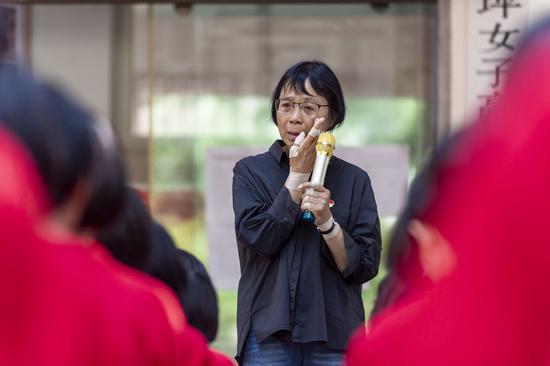
Zhang Guimei, 63, is one among them who chose to work in rural schools at the country's southwestern border for 40 years. She runs a senior high school for girls from underprivileged families. The school, which offers free education, has sent 1,800 graduates to universities and colleges -- forging a path out of poverty for the poor rural children.
The steady rise from poverty was exhibited in figures: the per capita net income of the rural underprivileged rose from 2,982 yuan (about 461 U.S. dollars) in 2015 to 10,740 yuan in 2020, posting an average annual growth of 29.2 percent.
But the transformation was not just numeric. Rural people have better living conditions, medical care, education and job opportunities near home.
GLOBAL IMPACT
UN Secretary-General Antonio Guterres acknowledged China's anti-poverty campaign over the past few years, calling it "the most important contribution" to the global poverty reduction cause.
Combined with past achievements, China has contributed to over 70 percent of the global reduction in poverty, showed World Bank statistics.
In 2020, the French newspaper "Le Monde," for example, wrote about China's "pair-up" practice, which pairs poor western regions with their wealthier eastern counterparts to receive dedicated support on capital, technology, personnel and other resources to fight poverty.
The "pair-up" model has long been in practice. As an official in east China's Fujian Province in 1997, Xi was in charge of Fujian's pairing assistance to northwest China's Ningxia Hui Autonomous Region. He had pushed for a relocation project during the tenure. The relocated town is home to 60,000 people today and thrives on mushroom farming and wine manufacturing.
Journalists are not the only foreign visitors to China's transformed rural villages.
Inspired by China's experience in poverty eradication, Lao leader Bounnhang Vorachith had traveled to Shibadong Village -- where the idea of targeted poverty alleviation had been put forward. He also visited Ningde, a poor region where Xi had worked during his tenure in Fujian.
Laos also set goals on poverty eradication by 2020, resembling that of China's.
After lifting hundreds of millions of people out of poverty, China can share what it has learned with the rest of the world, said U.S. billionaire philanthropist Bill Gates, whose foundation works with Chinese partners in this regard.
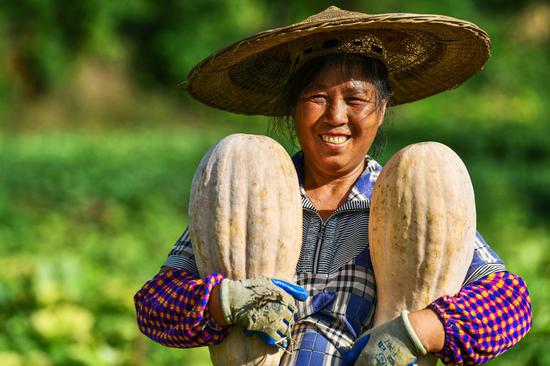
THE WAY FORWARD
Ending poverty is not the destination, but is the beginning of a new journey.
To prevent people from slipping back into poverty, China has been keeping an eye on vulnerable groups so as to spot their difficulties at the earliest stage possible and offer timely help.
For counties that newly emerged from poverty, China set a five-year transition period during which previous targeted anti-poverty policies will continue. The measure aims to ensure these counties can smoothly shift to the rural vitalization strategy.
The strategy is an equally challenging task that aims to build rural areas into thriving businesses, with a pleasant living environment, social etiquette and civility, effective governance, and prosperity.
"We still need to stay tenacious like a bamboo deeply rooted in the rocks, keep our feet on the ground, and work hard to paint a magnificent picture of rural vitalization, and steadily march ahead towards the goal of common prosperity," Xi said in 2021 New Year speech.









